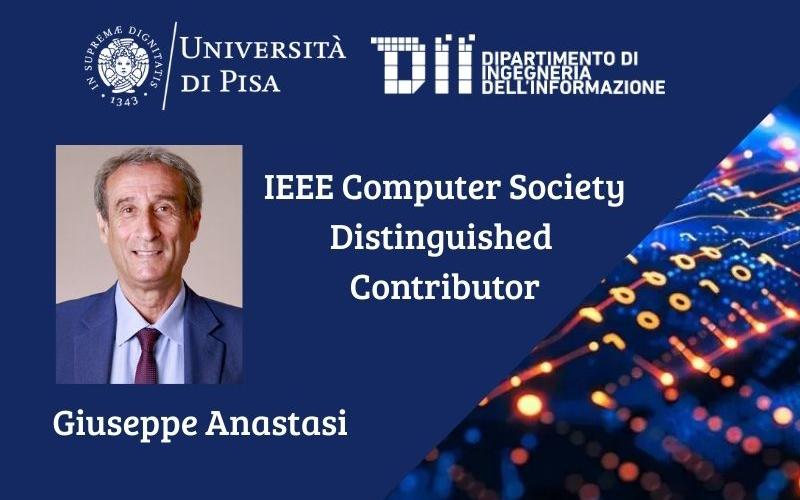La nomina a Distinguished Contributor (DC) premia i membri e gli affiliati della Computer Society che hanno apportato contributi tecnici significativi e continuativi alla IEEE Computer Society, alla...
Leggi tuttoFoReLab seminar: Online optimization and machine learning: Applications to resource allocation problems in wireless networks

April 18th, 2024 - 15.30-16.30
Sala riunioni piano terra, DII, Via Caruso 16
Abstract:
In this talk, we discuss the potential of online convex optimization and no-regret learning to design efficient resource optimization policies (in terms of energy or rate-efficient resource allocation) and in particular their ability to cope with high and unpredictable temporal variability of the network. The underlying dynamics may be caused by the wireless environment, the devices' heterogeneous characteristics in terms of mobility, connectivity patterns, etc., relevant for instance in IoT networks — envisioned to interconnect wireless "things" at a massive scale, with limitations in terms of computational capabilities and energy consumption. In such arbitrarily varying and unpredictable networks, algorithms that target fixed operating points or network states (e.g., classic optimal solutions) are no longer relevant. Instead, drawing on these tools, we propose efficient and dynamic policies that are able to adapt on-the-fly to the network changes, while relying only on strictly causal and limited feedback information.
Bio:
E. Veronica Belmega is a Full Professor at the Université Gustave Eiffel and LIGM research lab, Marne-la-Vallée (Greater Paris), France, since May 2022. Previously, she was an Associate Professor (MCF HDR) with ENSEA graduate school (Sep. 2011 - Apr. 2022) and Deputy Director of ETIS laboratory (Jan. 2020 - Apr. 2022), Cergy, France, where she is currently an Associate Researcher. She received the Engineer Degree (MSc) degree from the University Politehnica of Bucharest, Romania, in 2007, and the M.Sc. and Ph.D. degrees both from the University Paris-Sud 11, Orsay, France, in 2007 and 2010. From 2010 to 2011, she was a post-doctoral researcher in a joint project between Princeton University, N.J., USA and Supélec, France. In 2009, she received the L’Oréal – UNESCO – French Academy of Science national fellowship. She is a Senior Member IEEE since 2020 and the recipient of the 2021 CY Alliance award: "For women and science". She currently serves as Area Editor for the IEEE Transactions on Machine Learning in Communications and Networking. Her research interests lie in game theory, online optimization and machine learning applied to distributed networks.



